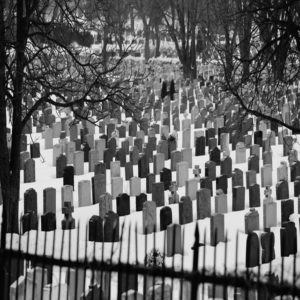Arranging a Funeral
 Organizing a funeral is undoubtedly difficult for anyone. Just dealing with the very thought of losing someone is already overwhelming, what more having to arrange the funeral.
Organizing a funeral is undoubtedly difficult for anyone. Just dealing with the very thought of losing someone is already overwhelming, what more having to arrange the funeral.
Some prefer not to hire a funeral director when planning a funeral. If you are one of those people, don’t feel bad about not having any financial resources to hire one. After all, the scale of how much you loved the deceased isn’t measured by how extravagant, to the dot or incredibly arranged the occasion is. Even in this situation, it’s the thought that counts. In fact sometimes, doing it yourself has its benefits.
Today, we’re going to share with you an extensive funeral planning checklist as well as other useful tips to guide you with along the way.
Funeral Checklist
You don’t have to panic in the absence of a funeral director. All you have to do is to use the checklist below to ease the stress you may be feeling.
- Date
- A death needs to be registered before you can consider a date for the funeral.
- Where the deceased will rest while waiting to arrange a date?
- How long will it take friends and family that need to travel from afar?
- Type of ceremony
- Considering practical issues and requirements.
- Traditional?
- Burial?
- Cremation?
- Non-religious?
- Green burials?
- Burial at sea?
- Transportation
- Both for the deceased and the mourners.
- Will there be a procession?
- Arranging the vehicle transporting the coffin?
- Type of caskets or coffins?
- Pall Bearers
- Will you need pall bearers?
- Will four suffice or will you need six?
- Do you have volunteers for this or will you need to hire pall bearers?
- Invitations
- What will they say?
- How will they be designed?
- What type of card or paper will they be printed on?
- How will you deliver them?
- Flowers
- Will you have any?
- Which type?
- Floral theme?
- Will others bring or donate flowers?
- What will happen to the flowers after the funeral?
- Organising funeral tributes
- Floral tributes?
- Composing written tributes.
- Cards
- Will you need Mass cards or other cards for the ceremony?
- Eulogy & Funeral Poetry Readings
- Choosing appropriate eulogies.
- Popular funeral poetry.
- Music and Prayers
- Which songs and prayers would you like?
- Music by Vocals or instrumentals?
- Where you will find singers and/or musicians?
- Will there be music at the cemetery?
- Monumental Masons & Stonemasons
- Choosing the right monumental mason to suit your needs.
- Types and design.
- Timescale for commissioning.
- Reception
- Formal or informal?
- Choosing the venue
- Hiring professional caterers?
Funeral Arrangement Tips
Now that we’ve got the checklist covered, here are some funeral arrangement tips to help you with your planning.
- Determine how much you can afford
It’s never about how much you are going to spend for a funeral. It’s all about doing the best with what you have and doing it from the heart. Lisa Carlson, co-author of Final Rights: Reclaiming the American Way of Death explains: “You have to figure out how much you can afford to spend,” Carlson said. “How much you spend isn’t proof of how much you love someone. It’s important to remember that.”
As early as you can, talk numbers with everyone who is willing to pitch in. This is very important, as funeral expenses add up quickly.
- Prepare the necessary documents
Since you and your family are officially in charge of the funeral, there are certain documents you must have in hand as well as other papers to finalize. This way, anything that was left unfinished or unattended by the deceased will be fixed with. Moreover, his or her death is recognized legally
Some of the documents you must fix are:
- The deceased’s birth certificate
- Marital status
- Social security number
- Date and location of death
- Cause of death
- Next of kin
- Veteran status
- Usual occupation
- Place of burial/cremation
- Deceased’s doctor name
- How soon the service needs to be
- Have all the details written in paper
From the flowers and casket to the complete guest list and invitations, it’s important to keep track of everything. This way, you’re certain that you’re not missing out on anything or overlooking something that needs attention. Remember to always ask for help. Everyone will be more than happy to extend their support any way they can.
- Remember to take care of yourself
This could end up taking a toll on you. That’s why it’s critical to take good care of yourself throughout the process.
Jade Wood, a psychotherapist in Washington, D.C. explains: “Even if the deceased individual was sick for a long time and the end was in sight, there’s always an element of shock involved in any death. While there might not always be surprise, people are operating under a great deal of shock. Lots of time shock can be useful, because it allows people to get things done and focus on tasks, and in fact, that can keep some of that grief at bay.”


